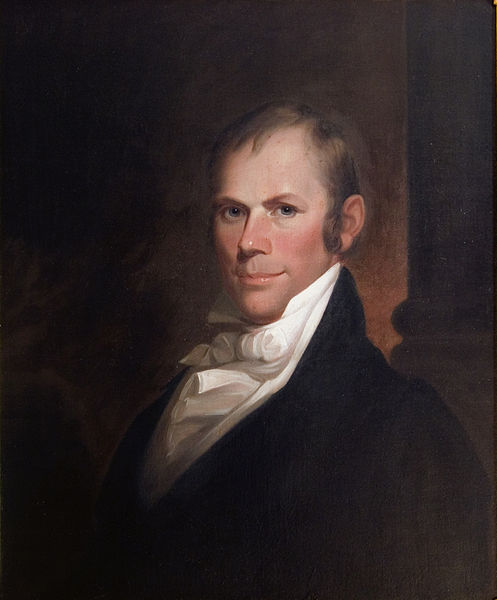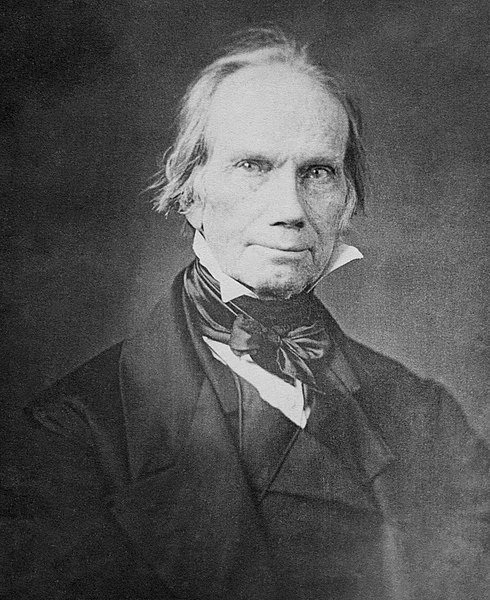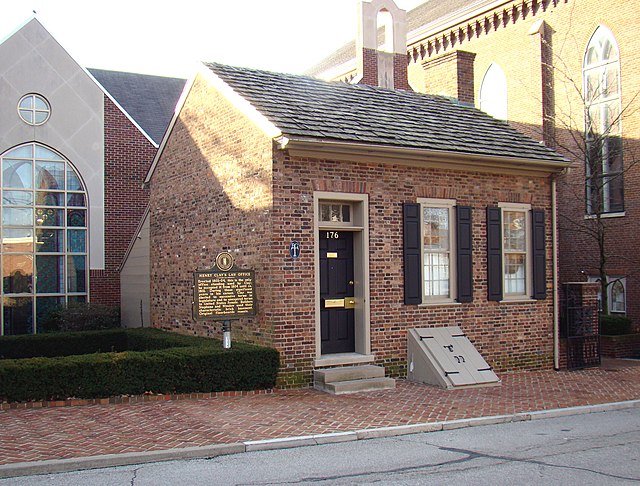The Tariff of 1833, enacted on March 2, 1833, was proposed by Henry Clay and John C. Calhoun as a resolution to the Nullification Crisis. Enacted under Andrew Jackson's presidency, it was adopted to gradually reduce the rates following Southerners' objections to the protectionism found in the Tariff of 1832 and the 1828 Tariff of Abominations; the tariffs had prompted South Carolina to threaten secession from the Union. This Act stipulated that import taxes would gradually be cut over the next decade until, by 1842, they matched the levels set in the Tariff of 1816—an average of 20%. The compromise reductions lasted only two months into their final stage before protectionism was reinstated by the Black Tariff of 1842.
Senator Henry Clay
Senator John C. Calhoun
Henry Clay Sr. was an American lawyer and statesman who represented Kentucky in both the U.S. Senate and House of Representatives. He was the seventh House speaker as well as the ninth secretary of state. He unsuccessfully ran for president in the 1824, 1832, and 1844 elections. He helped found both the National Republican Party and the Whig Party. For his role in defusing sectional crises, he earned the appellation of the "Great Compromiser" and was part of the "Great Triumvirate" of Congressmen, alongside fellow Whig Daniel Webster and Democrat John C. Calhoun.
Clay in 1848
View of Henry Clay's law office (1803–1810), Lexington, Kentucky
Portrait by Matthew Harris Jouett, 1818
Portrait of Henry Clay





